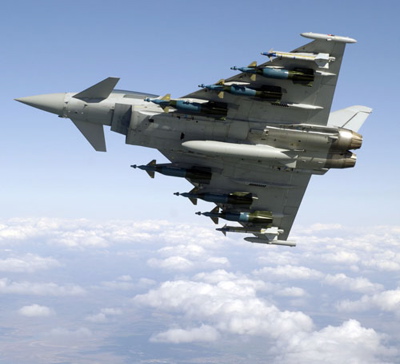Democrat November-December 2004 (Number 84)
The EU has just been militarised
Report by Brian Denny

European Union defence ministers have launched plans for battle-groups of troops poised for instant military action anywhere, in a significant move towards a European army. "These are combat troops in their barracks with their boots on ready to go," a British diplomat gloated.
France and Britain also announced plans to provide tactical military groups from 2007 to enable the EU to conduct two simultaneous war operations whenever necessary, particularly in Africa.
France is already interfering militarily in Ivory Coast, destroying the country’s small airforce last month, and Britain has troops in its former colony Sierra Leone. The joint announcement at the end of a one-day Franco-British summit said the two countries and other EU states would provide at least one rapid tactical group to the European Union from next January for military actions.
French President Jacques Chirac claimed that “Europe” needs to become a power on the international stage, able to stand alongside the United States in shaping a new world order.
The British and the French, the driving forces behind the scheme, will provide the first 1,500-strong battle-group, or "expeditionary force", starting in January.
The move comes as the EU takes on its first big military mission in December, replacing NATO in charge of the military occupation of Bosnia. Most of the troops will remain the same, merely switching from NATO to EU insignia. The EU has already deployed troops in Macedonia and Congo.
"Neutral" states such as Austria, Ireland and Malta do not intend to prevent the others going ahead under an EU flag and in their name.
Constitution
This military commitment is made clear in Article I-15 of the proposed constitution which states: "Member states shall actively and unreservedly support the Union's common foreign and security policy in a spirit of loyalty and mutual solidarity".
In fact the “common” EU foreign and defence policy, as it is known, would be a “single”, deeply imperialistic, foreign policy decided by the big EU powers, regardless of the thoughts of smaller EU powers.
The single policy will primarily allow Brussels to launch resource wars and wars for markets.
Despite continual denials from the euro federalists, the EU militarisation began 20 years ago with signing of the Single European Act, which launched Eurofighter a white elephant that has cost the British taxpayer £20 billion, yet not one plane has been delivered.
Brussels also agreed earlier this year to create a paramilitary police force to also launch operations anywhere across the globe. France in particular wants to create a paramilitary “gendarme” force to impose EU law following EU military actions.
A European Defence Agency, chaired by the British, has been set up to co-ordinate EU militarisation as envisaged within the planned EU constitution.
Italian defence minister Antonio Martino explained the EU’s military strategy of attack, reconstruction and the imposition of EU law. “There is a military phase and then reconstruction: the real problem is the transition phase and how this is tackled,” he said.
EU Chief of military staff Lieutenant General Rainer Schuwirth paraded this vision of euro-militarism by confirming that “national governments would have to give away their authority over their army”. He said for that to happen the EU would have to be “deepened”, as envisaged within the EU constitution.
Despite the fact that not one country has ratified the controversial document, EU foreign policy tsar Javier Solana is already setting up his European foreign ministry as envisaged in the constitution.
Solana has declared that the EU military force should be used, alongside the US, against any sovereign state to stop the proliferation of weapons of mass destruction, thereby retrospectively sanctifying the illegal attacks on Iraq. “We should be able to sustain several operations at the same time. We must develop a culture that fosters early, rapid and robust intervention,” he said. He claimed the EU/US western alliance is a “formidable force for good in the world”.
Global war policy
The Euro-federalist dream has always been to build a global military and economic power – a superstate – to dominate the world along with, as well as a rival to, the US.
Tony Blair’s foreign policy advisor Robert Cooper articulated this global war policy by boldly stating that what is required is a “new imperialism” which required EU citizens to get used to double standards and tolerating endless western aggression against poor, resource-rich states such as those in Africa.
Britain carried out this policy with the intervention in Sierra Leone in 2000 to further its own interests against rebels that controlled large areas of the diamond fields. Prior to British troops landing British mercenaries working for Sandline and Executive Outcomes were fighting the rebels and breaking an arms embargo with the full sanction of then foreign secretary Robin Cook.
The EU army also has a force in Congo, which has been described as one of the richest parts of the planet containing oil, gold and other minerals.
Today the EU and member states are sending troops to secure their own interests. It is clearly a question of who gets there first, it is not for nothing that the EU army is called a “Rapid Reaction Force”.
In short, the single currency is structural adjustment for European capital, demanding the wholesale privatisation of entire industries at home and abroad, the new European legal identity is designed to ensure it is imposed and the European army has been unleashed across the globe to ensure it stays that way.